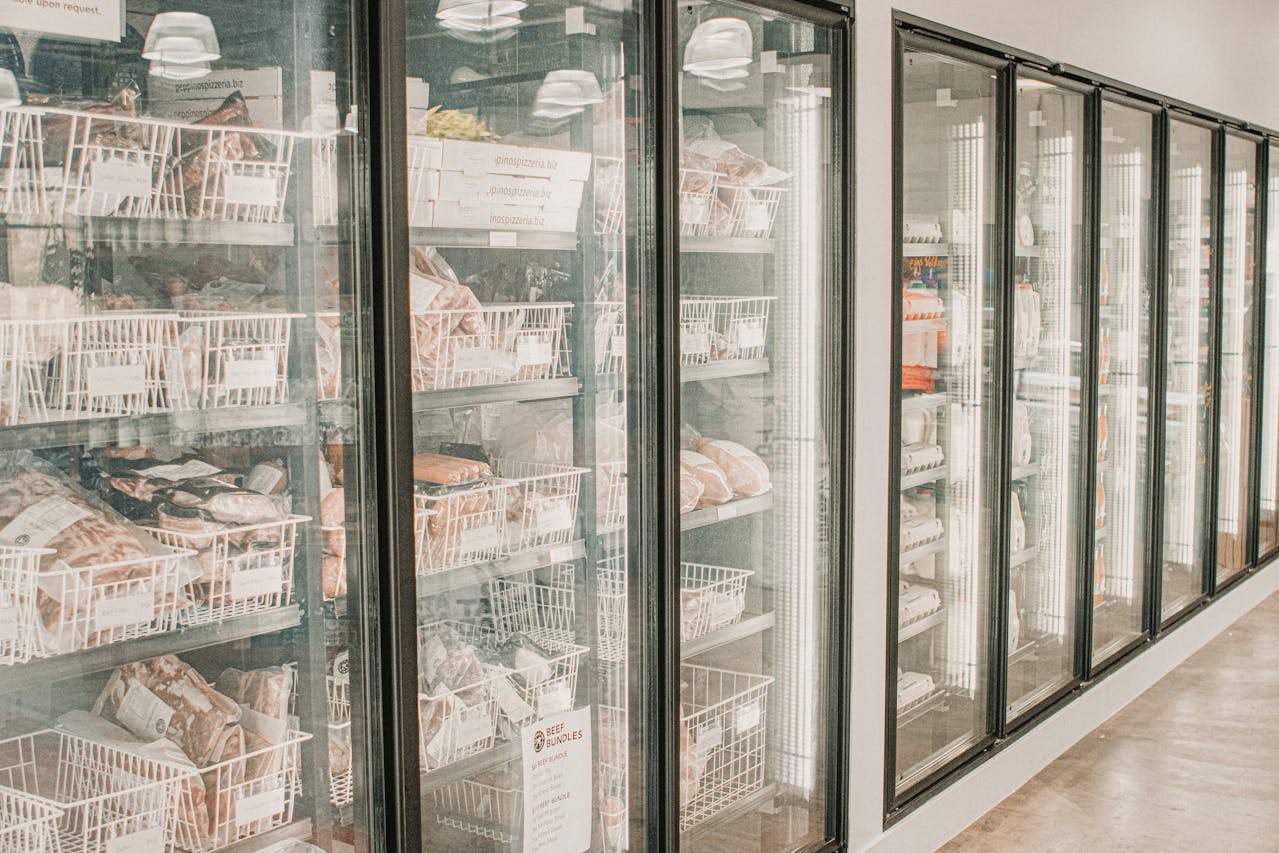
Freezers are a lifesaver for busy people. They help you save money, cut down on food waste, and keep meals ready for when you need them. But not every food belongs in the freezer for months on end. Some foods lose their taste, texture, or even become unsafe if you leave them frozen too long. Knowing what not to freeze long-term can save you from disappointment and wasted groceries. If you want your food to taste good and stay safe, it’s important to know which items are best kept out of the deep freeze. Here are seven foods you shouldn’t store in the freezer long-term.
1. Leafy Greens
Leafy greens like lettuce, spinach, and arugula don’t hold up well in the freezer for long periods. Freezing breaks down their cell walls, making them limp and watery when thawed. If you freeze them for more than a month or two, you’ll end up with a soggy mess that’s only good for soups or smoothies. Even then, the flavor can turn bitter. If you want to keep leafy greens fresh, store them in the fridge and use them within a week. For longer storage, blanch and freeze them, but use them quickly. The freezer is not the best place for long-term storage of leafy greens.
2. Soft Cheeses
Soft cheeses like brie, cream cheese, and ricotta don’t freeze well over time. The texture changes, becoming grainy or watery after thawing. The flavor can also become dull or off. If you freeze soft cheese for more than a month, you’ll notice it doesn’t spread or melt the same way. Hard cheeses like cheddar or Parmesan do better in the freezer, but even they can lose quality if left too long. For soft cheeses, buy only what you’ll use soon and keep them in the fridge. Freezing is not a good long-term solution for these dairy products.
3. Cooked Pasta
Cooked pasta seems like a good candidate for the freezer, but it doesn’t hold up well for long. After a few weeks, the noodles become mushy and lose their bite. The texture gets worse the longer they stay frozen. If you freeze pasta with sauce, the noodles can absorb too much liquid and fall apart. For best results, freeze cooked pasta for no more than a month. If you need to store it longer, keep the sauce and noodles separate. Long-term freezing just doesn’t work for cooked pasta.
4. Potatoes
Raw potatoes don’t freeze well at all. The water inside them expands and breaks down the structure, leaving you with a grainy, mushy texture when thawed. Even cooked potatoes can become watery and lose their flavor if frozen for too long. French fries and hash browns from the store are specially processed to handle freezing, but homemade versions are not. If you want to freeze potatoes, cook and mash them first, but use them within a month or two. Potatoes are one of those foods you shouldn’t store in the freezer long-term if you care about taste and texture.
5. Fried Foods
Fried foods like chicken tenders, onion rings, or tempura lose their crispiness in the freezer. The coating absorbs moisture, turning soggy and chewy after thawing. Even if you reheat them in the oven, they rarely get back to their original crunch. Store-bought frozen fried foods are made to handle freezing, but homemade versions are not. If you must freeze fried foods, eat them within a few weeks. For long-term storage, the freezer just isn’t the right place for fried foods.
6. Milk
Milk can be frozen, but it doesn’t do well for long periods. The fat separates, and the texture becomes grainy or slushy after thawing. If you freeze milk for more than a month, it can develop off-flavors and lose its creamy consistency. Thawed milk is best used for cooking or baking, not drinking. If you need to freeze milk, use it within a few weeks for the best results. Milk is a food you shouldn’t store in the freezer long-term if you want it to taste fresh.
7. Eggs in the Shell
Never freeze eggs in their shells. The liquid inside expands, which can crack the shell and let bacteria in. Even if the shell doesn’t break, the texture of the egg changes after freezing. The yolk becomes thick and syrupy, making it hard to use for most recipes. If you need to freeze eggs, crack them open and beat them first, then store them in an airtight container. Use frozen eggs within a month or two for best results. Eggs in the shell are definitely foods you shouldn’t store in the freezer long-term.
Keep Your Freezer for the Right Foods
The freezer is a great tool, but it’s not a one-size-fits-all solution. Some foods just don’t handle long-term freezing well. If you want to keep your meals tasty and safe, pay attention to what you put in the freezer and how long you leave it there. Foods you shouldn’t store in the freezer long-term often lose their quality, texture, or even become unsafe. Make smart choices, and your freezer will work better for you.
What foods have you tried freezing that didn’t turn out well? Share your stories in the comments.
Read More
5 Secrets to Using Your Kitchen More and Eating Out Less
10 Reasons Why Aldis is the Best Grocery Store Ever
The post 7 Foods You Shouldn’t Store in the Freezer Long-Term appeared first on Grocery Coupon Guide.







